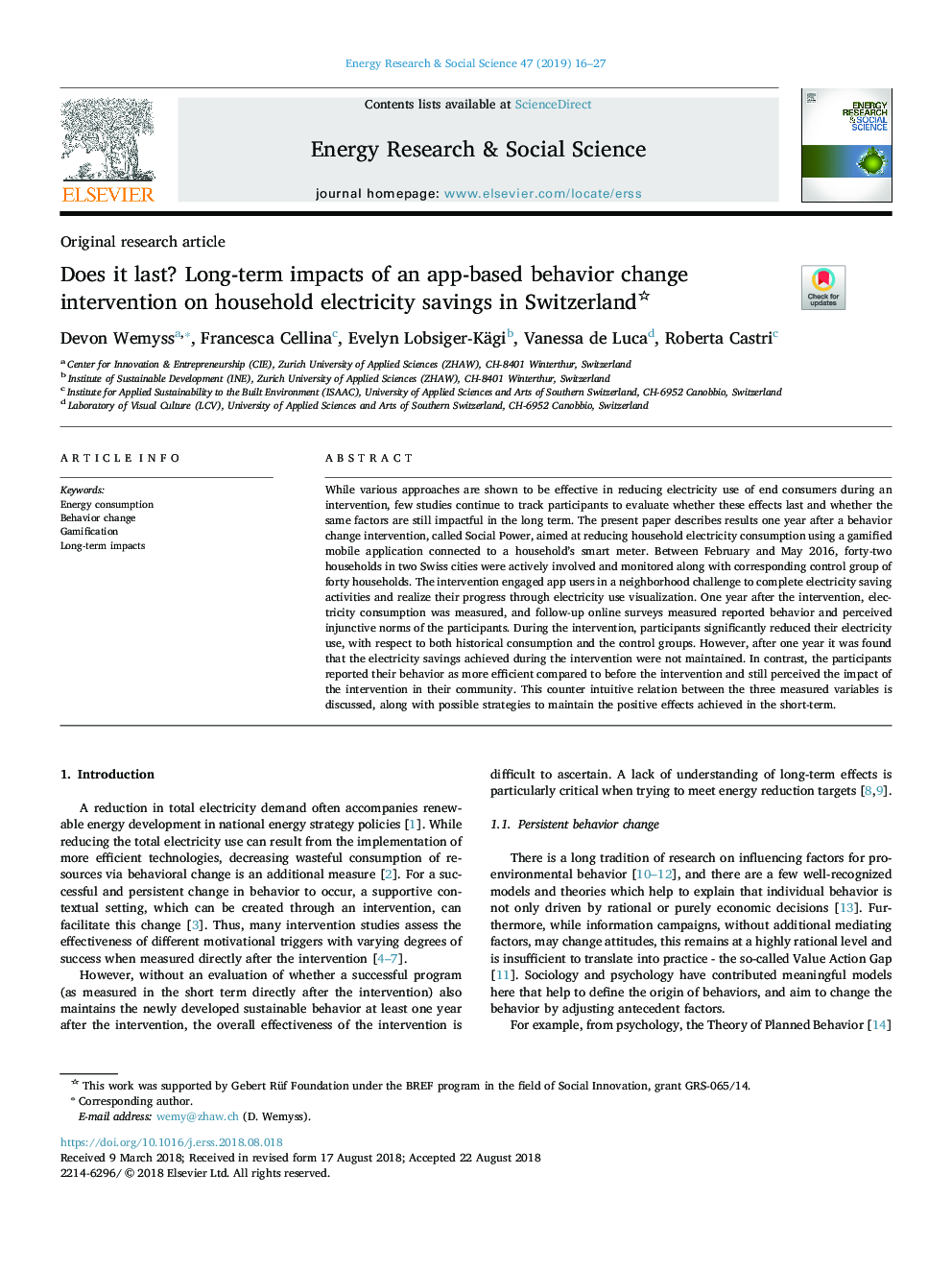| Article ID | Journal | Published Year | Pages | File Type |
|---|---|---|---|---|
| 8959805 | Energy Research & Social Science | 2019 | 12 Pages |
Abstract
While various approaches are shown to be effective in reducing electricity use of end consumers during an intervention, few studies continue to track participants to evaluate whether these effects last and whether the same factors are still impactful in the long term. The present paper describes results one year after a behavior change intervention, called Social Power, aimed at reducing household electricity consumption using a gamified mobile application connected to a household's smart meter. Between February and May 2016, forty-two households in two Swiss cities were actively involved and monitored along with corresponding control group of forty households. The intervention engaged app users in a neighborhood challenge to complete electricity saving activities and realize their progress through electricity use visualization. One year after the intervention, electricity consumption was measured, and follow-up online surveys measured reported behavior and perceived injunctive norms of the participants. During the intervention, participants significantly reduced their electricity use, with respect to both historical consumption and the control groups. However, after one year it was found that the electricity savings achieved during the intervention were not maintained. In contrast, the participants reported their behavior as more efficient compared to before the intervention and still perceived the impact of the intervention in their community. This counter intuitive relation between the three measured variables is discussed, along with possible strategies to maintain the positive effects achieved in the short-term.
Related Topics
Physical Sciences and Engineering
Energy
Energy (General)
Authors
Devon Wemyss, Francesca Cellina, Evelyn Lobsiger-Kägi, Vanessa de Luca, Roberta Castri,
